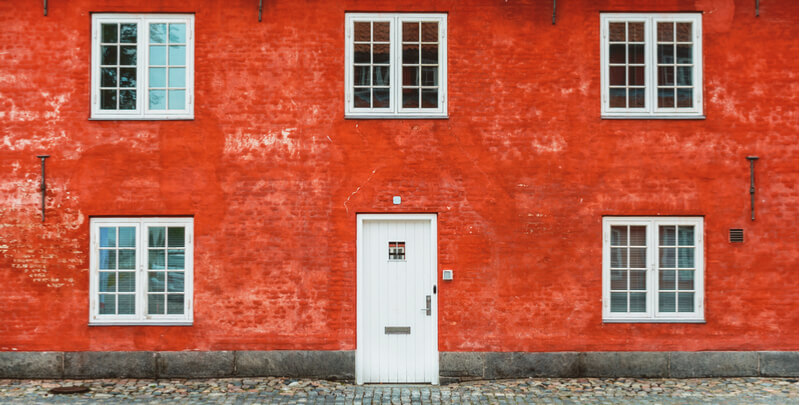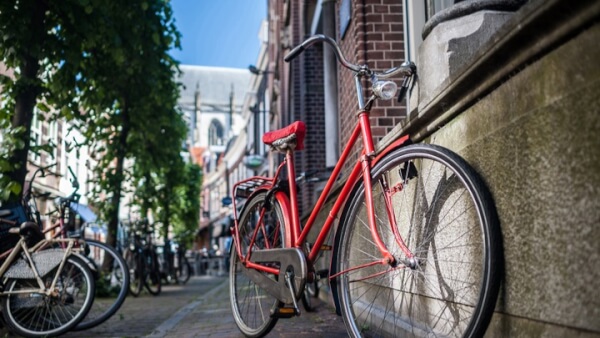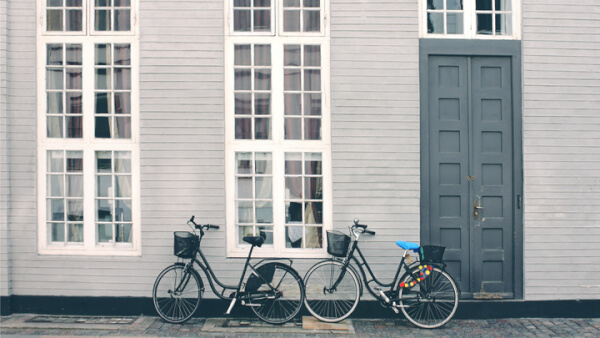How to move to Denmark: Step-by-step guide
People dream of moving to Denmark for its egalitarian society, progressive ideals and focus on design and aesthetics. In Denmark, you’ll find bakeries,...

Copenhagen is a world class city, with fantastic culture and a vibrant cosmopolitan outlook. The Danes are famed for having the best work life balance on the planet and life in Copenhagen supports this with plenty of outdoor and leisure activities right on your doorstep.
However, the Copenhagen life doesn't come cheap. A one bedroom apartment in the city centre will set you back €1267 on average a month, excluding utilities, with a three bed city centre family apartment coming in at €2318. Add to this a fairly high grocery price, and some astonishing expenses for eating out, and Copenhagen is certainly not cheap. Consumer prices overall, including rent, are over 50% higher in Copenhagen than in London, for example, although naturally your actual cost of living varies enormously based on your lifestyle and preferences. Adjustments like living outside of the city centre can bring down costs significantly.
If you’re just making plans, it’s important to take into account all the costs associated with your move to Denmark. Compare the cost of living in Copenhagen with that of your home town using a site like Numbeo and check out this quick guide to renting in Copenhagen to find the perfect place for you.
Although there are several different options when it comes to housing in Copenhagen, the market is fiercely competitive and finding a place can often be tricky. Because of expats arriving at the start of the calendar and school year, it's especially hard to find accommodation in January or September.
Although there isn't a huge amount of housing available on the rental market in Copenhagen, there is a mixture of furnished and unfurnished options. Even unfurnished places will have electrical appliances and a fitted kitchen. You’ll be able to choose from apartments, terraced homes and larger single family properties, although naturally these larger places are seldom available anywhere central.
Apartments in Copenhagen are notoriously small, despite their cost. Usually the living accommodation will be detailed in square metres on the advertisement - but make sure it's ‘living space’ rather than gross area which is shown. Gross area includes things like the stairwell or cupboards, which can make an apartment sound larger than it really is!
If you’re only in Copenhagen for a relatively short time, there are fully furnished short term rents available, although these tend to cost a lot more.
If you're looking for student accommodation specifically then there's help at Ungdomsboliger, as they specialise in student and youth accommodation across Denmark. Otherwise your college might be able to help, as there are often student residences connected with the university. The government supported site Study in Denmark also offers resources and advice to students looking for accommodation in Copenhagen.
Private rentals tend to be fairly expensive, so for students or those looking to find a cheaper deal, a flatshare might be a better option. Flat shares are often more ‘one off’ individual arrangements made between a couple of acquaintances. That means looking through your contacts and friends is a good start in addition to joining Facebook groups like the closed group ‘Copenhagen Apartment, Flat and House Rentals’, which covers all accommodation types. A quick search pulls up lots of similar groups but some are larger and more active than others.
Another option you might come across in Denmark is the sommerhus or fritidshus (summerhouses). These are usually out of the city and can vary from plush to lacking even basic utilities. They can only be lived in from the 1st of April to the 1st of October, technically, although this rule is often broken. This isn't a great choice for accommodation in Copenhagen but can be an effective stop gap if you're struggling and just need somewhere immediately and for a short time.
Naturally, where you choose to rent in Copenhagen will be largely dictated by the location of your job or university. Not to mention your budget. As you might expect, the further away from the heart of town you go, the more affordable the rents. So you can get more for your money if you’re prepared to have a bit of a journey into the city.
The inner city area in Copenhagen is known as Indre By. This is the very centre of town, full of shops, restaurants and hotels. Accommodation is available here but is out of the budget of most. Just across the Inner Harbour is Christianshavn, home to tourist sites including the ‘free town’ of Christiana. Technically still part of the inner city, this is marginally more accessible, but still is expensive.
Vesterbro is a very mixed area near the central train station, where you’ll find young professionals, students, expats and people from pretty much every other walk of life. It’s thoroughly gentrified in some places, while others are still on the edgier side.
Another, more multicultural area is Norrebro, which has been developed from its seedy past and is now extremely popular. Finally, Osterbro, home to the Little Mermaid statue, is another city centre district popular with families because of the green space and peace.
With a seven minute public transport commute to the centre, Ørestad is farther out from the city but still fantastically well connected. Housing here is usually at a much more accessible price, and mainly in new blocks planned along modern lines. It’s a new development, including the largest shopping centre in the country.
Sluseholmen is another area popular with young families, built on an artificial peninsula in the harbour. It’s connected by bridge to the city, and was formerly the site of heavy industry and docks. Finally, another good choice if you don’t want to be in the centre, is the island of Amager, which is another island connected to the city with bridges. It’s only about 15 minutes from the city but has parks and a popular beach making it perfect for summer weekends.
If you’re looking for student accommodation the chances are that you’re on a budget. Nordvest, between Vesterbro and Norrebro offers affordable housing for students. However, if you’re looking for student accommodation, then your best bet might be to look for a company specialising in this form of housing, rather than on the open market. It can be especially hard to find student accommodation during peak times (like summer, when all incoming students are looking at the same small pool of places), but the helpful Study in Denmark website has a lot of information, and ‘student to student’ tips and advice.
Specialised companies focus on locations near university campuses, but might give more or a budget-friendly choices. Ask your university for their advice on reputable agencies, or try an established organisation like Ungdomsboliger. For a fee you can also join specialist student accommodation sites to find ads for places that might suit you.
Government backed site Work in Denmark has a fantastic directory of realtors for new arrivals. Look for legitimate brokers and agents here or by asking for recommendations or reviews. Alternatively, stick with an umbrella site for rentals all over the city such as the following:
It can feel daunting if you’re just setting about finding the right place in another country and culture. Here are some of the things that can help you be more prepared.
Firstly, it's important to know that most landlords will ask for your CPR number, which you get when you become a legal resident. If you don't have residency yet then you’ll need to address that before looking for a home.
With the CPR numbers in hand, you're good to go. Even if you don’t speak any Danish it can help to have a few words on hand when you’re trying to find your perfect rental in Copenhagen. Many sites have English translations, and levels of spoken English are excellent in Denmark, but here are a few terms you’ll see:
Rental contracts are usually pretty standard but written in Danish (naturally). It's important to have help translating the terms so you know what you're signing. For example, the contract will specify the condition in which the property must be handed back, which can include costly terms like repainting or redecorating to ensure it's given back to the landlord in a pristine state.
After you move in you have two weeks to report any problem you notice to your landlord. If you spot damage to the property or furniture during this time you must tell the owner or risk being charged for it when you leave.
Because of the competitiveness of the market, tenants tend to be keen not to rock the boat and there are horror stories of unethical landlords unfairly withholding deposits. Checking the contract, taking photos of the condition of the place, recording any investment you make in the property and maintaining good relationships with the landlord are all smart moves.
It's a landlord's market in Copenhagen. Tenants compete for good properties and the owners can afford to be very picky. It's worth trying to impress a landlord - simple politeness and courtesy goes a long way.
Give yourself the best possible chance by taking a short-term place in a hostel or hotel at first to buy some time. Finding your new home might take a while.
Once you do find the right place you’ll have to jump on it quickly before someone else gets in there. Having a friend along with you when viewing flats can help to make sure you’re not overwhelmed with information. That way you can discuss your impressions of a place and a landlord, and then trust your instinct when you have to move fast to grab your perfect Copenhagen apartment.
Don’t forget that many Copenhagen apartments are rented out by word of mouth. If you're in Copenhagen for work, then make sure your colleagues and local friends know you’re looking. You might find that they can hook you up with a place with a friendly landlord without incurring agent fees.
Depending on the contract, you could be asked for a deposit of up to three months rent to get your new home. Additionally, some landlords insist on having three months rent upfront which is then credited back as the rent due for the last three months of the contract. That means your upfront payment might be as much as seven months rent - ouch.
If you're unsure about the contract details it's definitely worth seeking the advice of a professional broker or relocation agent.
Because housing moves so quickly in Copenhagen, landlords are often not willing to agree to let prospective foreign tenants view the property before they move to Denmark. There are simply enough local tenants to work with to risk waiting for an expat to arrive.
It's a good idea therefore, to visit a couple of months before you finally move to start the process, so you can talk face to face with landlords and discuss your situation. In this case you'll have to be ready to grab a place if you see the right one. You might find that you need to make a deposit payment before you have opened a local bank account, or even moved to the country. If you do, it’s worth remembering that your home bank might not offer the best value when it comes to making an international money transfer. Often banks will add hidden fees by using a poor exchange rate, even with their own account holders.
Instead, try a specialist service like Wise to make your payment directly to your new landlord or agent, with no hidden costs and a fair exchange rate, known as the mid-market rate.
Be wary of common scams, such as properties offered for rental without proper contracts, or landlords or agents who ask for fees for a service you don’t want or need. There are a relatively large number of scammers active in Copenhagen and around. It's not unheard of for ‘landlords’ to ask for a deposit up front for an apartment which might not even exist - given the competition on the market, some newcomers are so keen to get settled they pay, losing their hard earned cash. If possible ask for help from your work or a relocation agent, to navigate through the process.
Although the rental market in Copenhagen is more competitive than in some other countries, by casting your net wide, using your contacts well and being quick to make a decision on a place, you've got every chance of snagging your dream Copenhagen rental. Good luck!
*Please see terms of use and product availability for your region or visit Wise fees and pricing for the most up to date pricing and fee information.
This publication is provided for general information purposes and does not constitute legal, tax or other professional advice from Wise Payments Limited or its subsidiaries and its affiliates, and it is not intended as a substitute for obtaining advice from a financial advisor or any other professional.
We make no representations, warranties or guarantees, whether expressed or implied, that the content in the publication is accurate, complete or up to date.

People dream of moving to Denmark for its egalitarian society, progressive ideals and focus on design and aesthetics. In Denmark, you’ll find bakeries,...

Between insanely beautiful nature and architecture, one of the highest happiness indexes in the world, incredible workers’ benefits and the unique (and cozy!)...

Greater Copenhagen covers the city of Copenhagen, and surrounding areas of Eastern Denmark and Southern Sweden. It aims to be the global leader in attracting...

Figures from the Danish Immigration Service show that more people than ever are moving to Denmark to live, study and work. They’re drawn by the stunning...